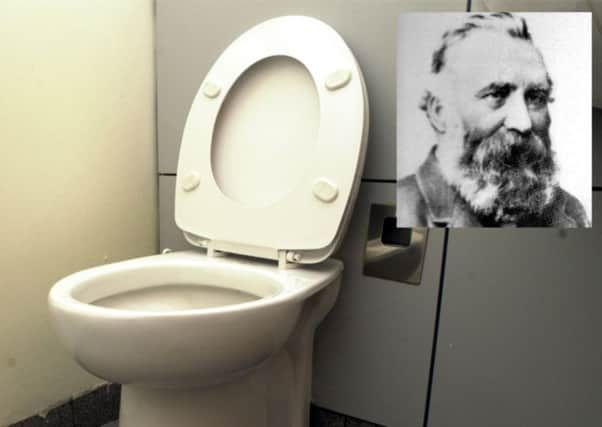Fact of the Week: Shankie / shunky


The ‘Shanks’ in question refers to John Shanks, a Scottish plumber responsible for a number of innovations in the field, both on board ships and for domestic use and, indirectly, the term ‘shankie’ - or ‘shunky’ - to refer to a toilet.
The term famously appears in the book Trainspotting, by Irvine Welsh, as Mark Renton begins a description of a visit to the bathroom thus: “Ah whip oaf ma keks and sit oan the cold wet porcelain shunky.”
Advertisement
Hide AdIt also appears in a poem by Armadale poet Davie Kerr (‘We hae flo-oer bedecked borders an tidy trimmed greens / But memory flickers tho’ dear scenes lang awa / An scents fae the shunky, in the auld Monkey Raw’); a short story by Fred Uruqhart that appeared in a 1986 edition of literary magazine Chapman (“ ... Then, half an hour after that, when Big Isa wanted to go to the shunky, I found him there wi’ his troosers round his ankles”).
Born in Paisley in 1826, John Shanks entered the plumbing trade in the late 1840s, joining the firm of Wallace and Connell, well-known plumbing contractors at the time.
After completing an apprenticeship, he continued as a skilled tradesman with the company before going into business for himself in 1851, at the age of 25.
He opened his first premises on Paisley’s High Street, opening a plumbing shop in Lowndes Street in Barrhead in 1853.
His entrance into the sanitary engineering business came at a time when the link between cholera and typhus as a water-borne disease first became known, prioritising the provision of clean water supply.
Shanks also benefited from a number of newly-built tenements requiring plumbing. He continued to operate both shops until the mid 1850s, when he transferred his business to Lowndes Street in Barrhead.
Advertisement
Hide AdA brass foundry was opened in 1866 - called the Tubal Works - making brass fittings for toilets and baths, which were soon sold worldwide.
By 1875, Shanks had established Shanks & Co, Sanitary Engineers with his brother Andrew, also a plumber. The firm’s roots were in Main Street in Barrhead, employing eight people and with John as the senior partner, the firm began to grow. By the early 1900s, Shanks & Co employed 600 men on a seven-acre site - Barrhead’s single largest employer.
Advertisement
Hide AdEvery stage of the production was completed on site, from iron-moulding to enamelling, with employees engaged in as many as 20 different trades, with Shanks establishing his own pottery to ensure uniformity of quality and economic production.
Prior to his death in December 1895, John Shanks had taken out up to 100 patents.
The firm continued as Shanks Holdings Limited, until it merged in 1969 with Armitage - a competitor in the sanitary engineering business - forming the now worldwide brand Armitage Shanks.
The brass foundry closed in 1989, after the company had experienced difficulties during the early part of the decade, with a number of jobs being lost. The works finally closed in 1992 amid widespread protest in the town.
Somewhat bizarrely, but also a testament to its global success, Armitage Shanks has made a number of appearances in unlikely surroundings, including:
• The name of an English punk band in the 1990s and early 2000s;
Advertisement
Hide Ad• The ‘Armitage Shanks Championship Bowl’, a fictional ‘Mornington Crescent’ prize on comic radio quiz I’m Sorry I Haven’t A Clue;
• ‘Armatage Shanks’ [sic], the first song on rock band Green Day’s 1995 album Insomniac, inspired after a visit to England where the band noticed the brand name on urinals.
Quite a long way from the humble Paisley beginnings of John Shanks.